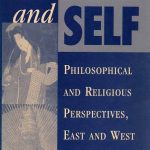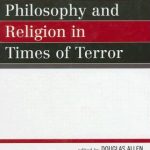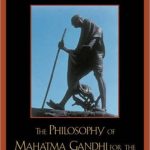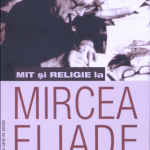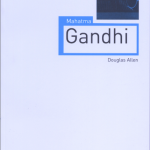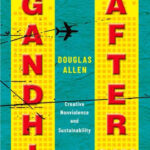Research and Publications for Douglas Allen
Douglas Allen served as Professor of Philosophy at the University of Maine, USA, for 46 years (1974-2020) and became Professor Emeritus of Philosophy in September 2020. He served as Chairperson of the Department of Philosophy (1979-1982, 1998- 2003). He served as President of the international Society for Asian and Comparative Philosophy, 2001-2004, and is the Editor of the Lexington Books Series of Studies in Comparative Philosophy and Religion. Author and editor of 18 books and more than 150 book chapters and scholarly journal articles, he has been the recipient of Fulbright (1963-64, 2009-10) and Smithsonian (1992) grants to India, the Maine Presidential Research and Creative Achievement Award, and the Distinguished Maine Professor Award (given to the outstanding professor in teaching, research, and service).
As can be seen from the CV on the Biography page, Allen’s major areas of research specialization are Phenomenology (especially Phenomenology of Religion); Eastern Philosophy and Religion (especially Hinduism and Buddhism), the phenomenology of Mircea Eliade; the philosophy of Mahatma Gandhi, Marxism and Political Philosophy (especially Karl Marx); and Comparative East-West Philosophy and Religion. In recent years, most of Allen’s publications have been in two areas: first, phenomenology of religion, in general, and the phenomenology of Mircea Eliade, in particular; second, various peace, nonviolence, and justice topics, in general, and the philosophy and practice of Mohandas (Mahatma) Gandhi, in particular.
Douglas Allen is often recognized as one of the world’s leading scholars in the phenomenology of religion and the philosophy of Mahatma Gandhi. He knew Mircea Eliade very well and has authored four books on Eliade and the phenomenology of religion, including Structure and Creativity in Religion: Mircea Eliade and New Directions (Mouton, 1978) and Myth and Religion in Mircea Eliade (Routledge, 2002).
While continuing to publish book chapters and articles every year on myth, symbolism, the phenomenology of religion, and other topics, Allen’s major focus in recent decades has been on the philosophy of Mahatma Gandhi (violence and nonviolence, war and peace, terrorism, truth, Vedanta, Hind Swaraj and the Bhagavad-Gita, marginality, technology, economic and environmental sustainability). He has authored and edited six Gandhi-informed books, including The Philosophy of Mahatma Gandhi for the Twenty-First Century (Lexington Books, 2008), Mahatma Gandhi (Reaktion Books, 2011), Gandhi after 9/11: Creative Nonviolence and Sustainability (Oxford University Press, 2019), and Special Issue on the Philosophy of Mahatma Gandhi (American Philosophical Association, 2022).
Significant journal articles and book chapters during 2019-2021 include the following: “Mahatma Gandhi’s Philosophy of Nonviolence and Truth: The Key Values and Concepts for Gandhi 150 and the Future,” The Acorn: Philosophical Studies in Pacifism and Nonviolence, vol. 19, no. 1 (Spring 2019): 1-14; “Philosophy and Practice: A Gandhi-informed Approach,” in Gandhi and the Contemporary World, ed. by Sanjeev Kumar (New Delhi: Routledge, 2020), pp. 27-43; “Understanding Religion: Interpretation and Explanation,” in Explaining, Interpreting, and Theorizing Religion and Myth: Contributions in Honor of Robert A. Segal. Series: Supplements to Method & Theory in the Study of Religion: 16, ed. by Nickolas P. Roubekas and Thomas Ryba (Leiden: Brill Publishers, 2020), pp. 42-69; “Philosophies of Becoming: Mythic Constructions, the Buddha’s Philosophy, and Gandhi’s Philosophy,” in The Time is Now: Essays on the Philosophy of Becoming, ed. by Mihaela Gligor (Bucharest: Zeta Books, 2020), pp. 23-61.
Significant journal articles and book chapters during 2022 include the following: “Is There a Future for the Philosophy of Religion?” Philosophy of Religion Website, Boston University, Feb. 2022 (http://www.PhilosophyOfReligion.org.); “The Moral, Philosophical, and Spiritual Basis of Gandhi’s Transformative Nonviolence,” in Gandhi’s Global Legacy, ed. by Veena Howard (Lanham, MD: Lexington Books, 2022); “Is Gandhi a Vedantist?” in Vedantic Lens to Address Contemporary Intellectual Challenges, ed, by Sukalyan Sengupta, Bal Ram Singh, and R.P. Singh (New Delhi: D.K. Printworld Ltd., 2022); “Is Gandhi’s Approach to Philosophy, Truth, and Nonviolence Really ‘Philosophical’?” Special Issue on the Philosophy of Mahatma Gandhi (American Philosophical Association, 2022); “Issues of War and Peace: Is Religion More of the Problem and What Are Mahatma Gandhi’s Insights?” Religions (Nov. 2022); “Author Speaks|With Douglas Allen|Gandhi After 9/11 (based on youtube interview by Prof. Dev Pathak and Sneha Alexander of the University of Delhi).
For Douglas Allen’s research areas, publications, research awards, and honors, see the links to the Long CV and the Shorter CV on the Biography page.

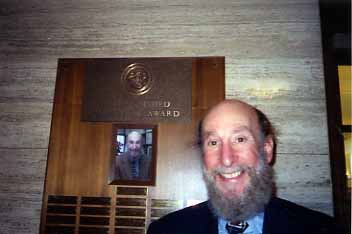
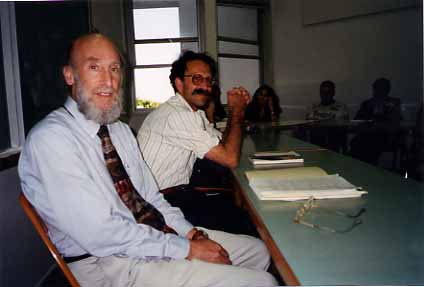
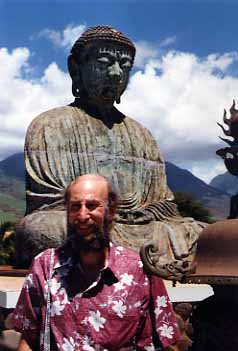

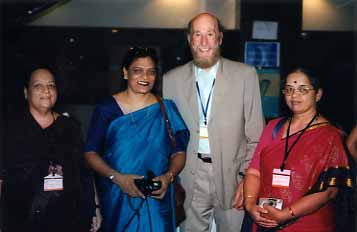
- Doug Allen’s first book, published in 1978, selected by the American Council of Learned Societies to share first prize for best first book in history or religions published during the past four year
- Published in 1982, by Payot Editions of Paris, this is one of four books written by Doug Allen that focuses on the phenomenology of religion of Mircea Eliade. Often described as the world’s major theorist of myth, symbolism, and religion, most of Eliade’s major scholarly works were written in French and published by Payot.
- Spanish edition, published in 1985, with photo of Mircea Eliade and Carl Jung on the cover.
- Co-edited in 1991 with Vietnamese scholar Ngo Vinh Long, Doug Allen’s close friend and fellow antiwar scholar activist. The volume contains Allen’s essay “Antiwar Asian Scholars and the Vietnam/Indochina War.” Many of these essays grew out of Allen’s antiwar scholarship and activism, much of which focused on the struggle against the country’s largest Vietnam Center at Southern Illinois University, where Allen had his first full-time faculty position (1967-72).
- This 1993 Asian Oxford University Press edition of Doug Allen’s 1992 edited work, expresses his commitment both as a scholar of Asian philosophy and religion and as a peace and justice activist. The volume contains Allen’s essay “Religious-Political Conflict in Sri Lanka: Philosophical Considerations.” The chapters on religious-political conflict in Pakistan, India, and Sri Lanka are more relevant than ever in understanding pressing contemporary issues.
- This edited volume, published in 1997, relates to Doug Allen’s focus on Asian and comparative philosophy and religion. He served as President of the international Society for Asian and Comparative Philosophy (2001-2004). His major contribution to this book is the essay “Social Constructions of Self: Some Asian, Marxist, and Feminist Critiques of Dominant Western Views of Self.”
- This is the 2002 Routledge edition of Doug Allen’s fourth book in english focusing on the history and phenomenology of religion of Mircea Eliade.
- This timely 2006 publication focuses on how comparative philosophy and religion can help us to analyze and deal with concerns about violence, terror, and terrorism in new creative ways. Along with post-9/11 perspectives, chapters explore how Plato, Aristotle, the Buddha, Confucius, Al-Farbi, Dewey, Gandhi, and others approached violence and terror.
- Bringing together some of the world’s leading Gandhi scholars, this 2008 publication explores numerous ways that Gandhi’s thought and action-oriented approach are urgently needed for addressing major problems of the twenty-first century.
- This is the 2008 revised, Korean edition of Allen’s Myth and Religion in Mircea Eliade and includes Allen’s “New Preface for Korean Edition.”
- This is the 2011 revised, Romanian edition of Allen’s Myth and Religion in Mircea Eliade and includes Allen’s “New Preface for Romanian Edition.”
- Mahatma Gandhi, published by Reaktion Books (London, 2011), presents a new perspective on Gandhi’s life and thought, how he shaped history, and how his philosophy and practices can be reformulated in ways that make them meaningful and effective for own own times.
- In Gandhi after 9/11: Creative Nonviolence and Sustainability, published by Oxford University Press in 2019, Allen claims that Gandhi, when selectively appropriated and creatively reformulated and applied, challenges us to rethink our views and practices so that they are more nonviolent and more sustainable. A Gandhi-informed perspective serves as a catalyst in providing resources and hope for dealing with contemporary crises. Focus is on violence and nonviolence, growing inequality and economic unsustainability, environmental unsustainability, alternative technology, globalization, the Bhagavad-Gita, socialism, marginality, gender, race, class, and human flourishing.






